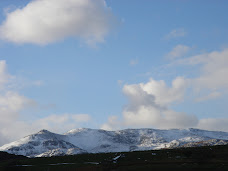This is most helpful with its counter-arguments, Fraser. How do you counter my fear that we will still need the same number of intercity trains as now, to cater for those passengers who wish to stop at the majority of stations that HS2 does not stop at?
Is HS2 like flying through the air on land? Why not stop destroying our current railway lines, like the half-finished, half used, 120 Kms Black Country Railway and use planes for flying through the air?
How do you counter Bill Gates who says that around 10% of greenhouse gas emissions come from the manufacture of steel and cement?
What is your answer as to how we must not be too concerned about ever-rising greenhouse gases from infrastructure spending to frivolous spending?
Is it permissible to argue that yet more soil disappearing under steel, concrete, brick and tarmac is, in effect, burying nature when humans are very much part of nature and, therefore, we need nature to work properly for our own survival?
How do you counter Chris Packham's ten points against HS2?
You wrote, "We have only half the railway track that we had in 1963." Would you say that this is a very sad reflection on everyone in the railway industry in losing so much of their livelihood so carelessly? How do you explain this serious oversight, Fraser?
What is the proportion or length lost to trams, please in the seven towns and cities of the UK that have trams to further mix up, in confusion, our multi-modal transport system?
How is it that Dudley is the largest town in the UK without a railway station but it only gets a tram stop (and £28 m National Innovation Centre), instead of train station, for its 150-year railway "of national strategic significance"?
Builders prefer to build homes on greenfield sites. And, to build railways on greenfield sites, too - if they're sufficiently wealth flaunting and prestigious. They say, "We're not going to bother with freight only or mothballed railway lines. They're old hat and 19th century. We want something that is more expensive and flash than Maglev train projects in China, Japan and South Korea." So we go for trams on the UK's last, mothballed mainline, "of national strategic significance" 120 Kms between Worcester, the Black Country and Derby. And trams are the second most expensive mode to construct after HS2 at over £200 m/Km. The current W Mids Metro Eastside extension, that is being built, is £133 m/Km. Even more expensive than most Maglevs!
















No comments:
Post a Comment